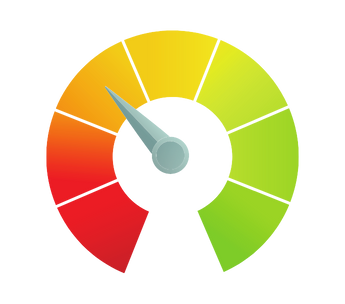Get the credit your business needs.
Access commercial financing with an adequate business structure. Click the button to pre-qualify.

We create your complete business structure
Credit tools
We take care of giving your company the credibility it needs to access lines of credit and loans in the future.
- Entity & Filings
- EIN & Licenses
- Website & Email
- Phones & 411
- Business Location
- Directories
- Business Plan
- Business Bank Account
- Business entity
- EINs and licenses
- Websites and mail
- 411 records
- Business location
- Directories
- Business plan
- Bank account
We create your complete business structure
Credit tools
We take care of giving your company the credibility it needs to access lines of credit and loans in the future.
- Entidad de negocio
- EIN y licencias
- Sitios web y correo
- Registros 411
- Ubicación del negocio
- Directorios
- Plan de negocios
- Cuenta de banco
Access lower credit rates
Credit tools
Get access to lenders with the best rates to finance business improvements, equipment purchases and other business expenses.
- Lines of credit
- Credit cards
- Loans
- Merchant Cash Advance
- Equipment Financing
- SBA Loans

How do we build your business credit?
1. First Prequalification
2. Optimization of reports
3. Credit building
4. Line of credit
How do we build your business credit?
1. First Prequalification
2. Optimization of reports
3. Credit building
4. Line of credit
Access financing for the expansion of your business.
Go beyond what you imagined
- First Prequalification
- Report optimization
- Credit building
- Credit line
Crédito Comercial
Credit tools-
We take care of the whole process, we give you a financial coach on how to manage your finances, we give you credit tools on how to have good credit and we take care of giving you all the follow-up, delivering results.
Frequently Asked Questions about Commercial Credit
A commercial loan is a type of financing offered to companies to help them cover their operating expenses and finance their growth projects. This type of credit can be used to cover expenses such as the purchase of inputs, payment of salaries and general expenses, among others.
Business financing is a way of raising capital to fund growth projects or to cover operating expenses. This type of financing can include commercial loans, lines of credit, equity investments, and other forms of financing.
The requirements for obtaining commercial credit or business financing vary by financial institution, but in general, businesses must have a solid financial history and a sound business plan to demonstrate that they are capable of repaying the money borrowed. Collateral, such as a mortgage on real estate or a personal guarantee, is also likely to be required.
A commercial line of credit is a form of financing in which a financial institution grants a company an amount of available credit at a given time. The company can use this line of credit when needed and only pays interest on the amount used.
You can apply for business credit or business financing through a financial institution, such as a bank or lending institution. You can also seek financing through investors or government programs.
There are several factors that can affect a company’s ability to obtain trade credit or financing, including:
Credit history: A company’s credit history is a key factor in determining its ability to obtain commercial credit or financing. A positive credit history, with timely payments and no defaults, can be a positive indicator for financial institutions.
Cash flow: Financial institutions will evaluate the company’s cash flow to determine its ability to pay. A strong and stable cash flow can be a positive indicator of the company’s ability to meet its financial obligations.
Financial history: the financial institution will evaluate the company’s financial history, including its profitability, solvency and liquidity, to determine its ability to obtain financing.
Size and type of business: The size and type of business may also affect your ability to obtain trade credit or financing. Larger, more established companies may have an easier time obtaining financing than smaller, newer companies.
Industry: The sector or industry in which the company operates may also affect its ability to obtain trade credit or financing. Some sectors are considered riskier than others by financial institutions.
Collateral: The availability of collateral, such as assets or third-party guarantees, can increase a company’s ability to obtain trade credit or financing.
It is important for a company to carefully evaluate these factors when applying for trade credit or financing, and to take into account any possible improvements it can make in these factors to increase its ability to obtain financing.
There are several types of commercial credits available, some of them are:
Line of credit: is an agreement between a financial institution and a company that allows the company to obtain funds at any time, up to a previously established limit.
Commercial credit: is a short-term loan granted to a company to finance its daily operations or to purchase goods or services.
Long-term loan: a long-term loan granted to a company to finance long-term projects or to acquire fixed assets.
Factoring: is a form of financing in which a company sells its unpaid invoices to a third party in exchange for immediate payment.
Leasing: an agreement in which a company rents an asset for a specified period in exchange for a monthly payment.
Secured credit: is a loan in which a company guarantees payment with its assets or with the guarantee of a third party.
Each type of commercial credit has its own advantages and disadvantages, and it is important for a company to carefully evaluate its options before deciding which is best for its needs.
Secured credit: A type of credit in which a third party, such as a company or individual, guarantees payment of the debt in the event of default by the borrower.
Export credit: A type of credit used to finance the export of goods or services to another country.
These are just some of the types of trade credits available. Before applying for a loan, it is important to carefully consider the needs and objectives of the company, as well as the conditions and terms offered by the lender.
As a financial and credit specialist, it is critical to understand that improving your company’s credit rating takes time, planning and a sound strategy. Here are some key tips for optimizing your business credit profile:
Know and monitor your credit history: Order credit reports from the major business credit rating agencies (such as Experian, Equifax and Dun & Bradstreet) and analyze the factors that affect your current rating. Identify areas for improvement and monitor your credit history regularly.
Pay on time and reduce outstanding debts: Be sure to pay all your bills and business debts on time. Timeliness of payments is a determining factor in your credit rating. Reduce your outstanding balances and avoid overloading your business debt.
Maintain an appropriate debt-to-equity ratio: An optimal debt-to-equity balance demonstrates to lending agencies that your company is financially sound and does not rely solely on debt to finance its operations.
As a financial and credit specialist, it is important to keep in mind that average interest rates for commercial loans in the U.S. can vary depending on a number of factors, including loan size, term, credit strength of the applicant and general economic conditions. The following is an overview of average interest rates for commercial loans in the United States, considering the financial outlook through September 2021:
Short-term loans – Short-term commercial loans, which generally have a term of 12 months or less, typically have interest rates ranging from 8% to 60%. These rates can vary significantly depending on the lender and the credit quality of the applicant.
Commercial Lines of Credit: Interest rates for commercial lines of credit typically range from 4% to 20%. Businesses with strong credit histories and good revenues can generally obtain lower rates.
Long-term commercial loans in the United States are a form of financing for businesses seeking funds to expand, invest in fixed assets, or finance large projects. These loans, generally with terms of 3 to 10 years or more, can be offered by a variety of financial institutions, including commercial banks, credit unions and non-bank lenders.
Loan amount: The amount of the loan may vary depending on the business need and the creditworthiness of the company. Amounts can range from tens of thousands to millions of dollars.
Terms: Terms for long-term commercial loans typically range from 3 to 10 years or more. Some loans may have shorter or longer terms, depending on the financial institution and the borrower’s needs.
Interest Rates: Interest rates on long-term commercial loans may be fixed or variable. Fixed rates remain constant…
consultation
Do you need personalized advice? Write us all your doubts and a Credit specialist will contact you as soon as possible.
- +1 833-666-1957
- +1 865-212-0456
- [email protected]
Click on the button below and a specialist will be happy to guide you through the process and answer your questions.


